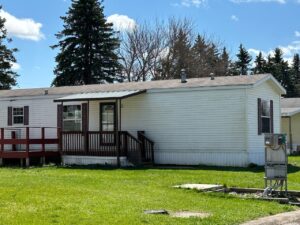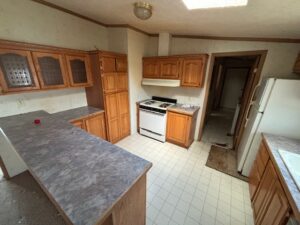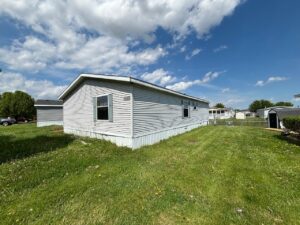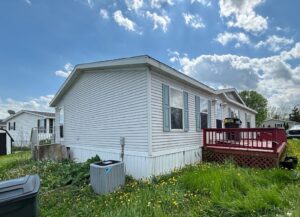Looking to upgrade your mobile home? Say goodbye to outdated features and hello to modern living with the Mobile Home Replacement Program Essentials. This program offers a seamless transition from your old mobile home to a brand-new, energy-efficient model. Experience the stark contrast between your current living situation and the comfort and style of a new mobile home.
With the Mobile Home Replacement Program, you can enjoy improved functionality, increased energy savings, and enhanced aesthetics without the hassle of a lengthy renovation process. Upgrade your lifestyle effortlessly while benefiting from the latest innovations in mobile home design. Make the switch today and elevate your living space with ease.
Key Takeaways
Apply Early: To increase your chances of getting accepted into the mobile home replacement program, submit your application as soon as possible.
Check Eligibility Carefully: Before applying, review the eligibility criteria thoroughly to ensure you meet all the requirements and have the necessary documentation.
Explore Funding Options: Look into the funding and support available through the program to assist with the costs of replacing your mobile home.
Gather Essential Documents: Prepare all the required application essentials in advance, such as proof of income, identification, and property ownership documents.
Utilize Additional Resources: Take advantage of the additional resources provided to guide you through the application process and answer any questions you may have.
Stay Informed: Stay updated on any program changes or updates by regularly checking the program’s official website or contacting program representatives for assistance.

Mobile Home Replacement Program Essentials Overview
Purpose
The Mobile and Manufactured Home Replacement (MMHR) Program is designed to address the critical need for replacing aging mobile and manufactured homes. It focuses on enhancing safety, energy efficiency, and overall living conditions for homeowners.
Assistance for Low- and Moderate-Income Homeowners
The program specifically targets low- and moderate-income homeowners who may not have the financial means to replace their outdated homes. By offering financial assistance, it aims to bridge the gap and ensure that these individuals can access safe and modern housing options.
Role of Local Program Administrators
Local Program Administrators play a crucial role in the successful implementation of the MMHR Program. They are responsible for overseeing the application process, conducting eligibility assessments, and coordinating with contractors to carry out the replacement work efficiently.
Benefits and Impact
Improved Housing Conditions
Replacing dilapidated mobile or manufactured homes through the mobile home replacement program (MMHR Program) offers a myriad of benefits. One of the most significant advantages is the opportunity to enhance the living conditions for individuals and families. By upgrading to newer, safer structures, homeowners can enjoy improved structural integrity, energy efficiency, and overall comfort in their residences.
The MMHR Program plays a crucial role in addressing housing issues by providing eligible homeowners with the means to upgrade their outdated properties. This initiative not only enhances the quality of life for residents but also contributes to the overall revitalization of communities. Through targeted investments in housing infrastructure, the program helps create safer and more sustainable neighborhoods for all residents.
Long-Term Financial Benefits
Participating in the mobile home replacement program not only improves living conditions but also brings about long-term financial advantages. The initial costs associated with replacing an old mobile home may seem daunting; however, over time, homeowners stand to benefit from reduced maintenance expenses, lower utility bills due to increased energy efficiency, and potentially higher property values. By investing in a new mobile or manufactured home through the MMHR Program, homeowners can secure a more stable financial future for themselves and their families.
-
Pros:
-
Enhanced living conditions
-
Increased property values
-
Sustainable neighborhoods
-
-
Cons:
-
Initial costs may be high
-
Community Development Impact
The positive impact of the mobile home replacement program extends beyond individual households to encompass broader community development. By upgrading aging mobile homes, this initiative contributes to neighborhood beautification, increases property values across the area, and fosters a sense of pride among residents. By promoting sustainable housing solutions, the program supports environmental conservation efforts and helps create more resilient communities for future generations.

Who Can Apply
Eligible Applicants
Eligible applicants for the mobile home replacement program do not include homeowners or individuals directly. Instead, qualified units of local government and not-for-profit corporations can apply for assistance.
Role of Municipalities
Municipalities play a crucial role as intermediaries in the application process for the mobile home replacement program. They assist in coordinating applications and ensuring compliance with program requirements.
Not-for-Profit Organizations
Not-for-profit organizations also serve as intermediaries in the application process. Their involvement helps streamline communication between applicants and program administrators, facilitating a smoother application experience.
Eligibility Criteria
Income Threshold
To qualify for the mobile home replacement program, applicants must meet specific income requirements. Typically, this involves having a household income that falls below a certain threshold. This criterion aims to target individuals or families in need of assistance due to financial constraints.
Primary Residence Condition
Another crucial aspect of eligibility is that the mobile home being replaced must serve as the homeowner’s primary residence. This condition ensures that the program benefits those who truly rely on their mobile homes for shelter and are in need of an upgrade or replacement.
Ownership Requirement
In addition to income and residency conditions, there is usually an ownership requirement for the existing unit. To be eligible for replacement, the applicant must demonstrate legal ownership of the mobile home seeking replacement. This criterion prevents misuse of the program by non-owners or investors looking to profit from the initiative.

Replacement Process
Demolition
Replacement of mobile homes typically starts with the demolition of the old unit. This involves dismantling and removing the existing structure to make room for the new home.
During the demolition process, residents are usually provided with alternative accommodation options to ensure their comfort and safety.
Purchase and Site Preparation
After the demolition phase, the next step in the home replacement process is purchasing a new unit and preparing the site for installation.
The purchase involves selecting a suitable mobile home that meets the criteria set by the Mobile Home Replacement Program (MHRP). Once purchased, preparations are made to ensure the site is ready for the new unit.
Temporary Relocation Assistance
Throughout the replacement process, residents may receive temporary relocation assistance to support them during this transition period.
This assistance can include financial aid for temporary housing, transportation services, or guidance on finding suitable interim accommodation options.
Funding and Support
Grant Reimbursement
Local Program Administrators offer grant reimbursement to cover expenses linked to replacing deteriorating mobile or manufactured homes. This financial aid aims to alleviate the burden on homeowners facing costly replacement projects.
Financial Support
For individuals seeking to replace their mobile homes, various forms of financial support are available. These include assistance for obtaining necessary permits, conducting environmental reviews, and carrying out essential testing procedures.
Local Program Administrators
Local Program Administrators play a crucial role in providing funding assistance to eligible individuals or families. They serve as valuable resources for those navigating the complexities of securing financial aid for mobile home replacement projects.
Application Essentials
Application Process
To apply for the mobile home replacement program, municipalities and not-for-profit organizations must meet specific requirements. These requirements typically include submitting detailed proposals outlining the intended actions to assist eligible homeowners in replacing their mobile homes. The application process involves a thorough review by the program administrators to ensure alignment with the program’s objectives.
Upon successful application, municipalities and not-for-profit organizations are tasked with transitioning into “Local Program Administrators.” This transition marks a significant shift in their roles, from applicants seeking funding to becoming key players responsible for overseeing and implementing the program at the local level.
Role of Local Program Administrators
As Local Program Administrators, these entities play a crucial role in providing support and guidance to eligible homeowners throughout the mobile home replacement process. They act as intermediaries between the program funders and the homeowners, ensuring that all necessary actions are taken to facilitate a smooth transition.
Local Program Administrators are responsible for assessing homeowner eligibility, conducting property inspections, and coordinating with contractors for the actual replacement of mobile homes. They also provide valuable assistance in navigating any bureaucratic hurdles that homeowners may encounter during the course of the program.
Pros:
Streamlined application process for municipalities and not-for-profit organizations.
Enhanced community engagement through local program administration.
Cons:
Increased administrative responsibilities for Local Program Administrators.
Potential delays in implementation due to logistical challenges.

Additional Resources
Grants
Local Program Administrators offer financial resources through grants for individuals seeking to replace their inefficient homes with new energy-efficient mobile homes. These grants aim to support residents in purchasing improved housing options.
Directory
For a comprehensive list of organizations providing assistance with mobile home replacement programs, individuals can refer to a directory of housing and community development not-for-profits statewide. This resource offers a wide range of support services tailored to meet various needs.
Online Exploration
To further aid in the process of accessing help for mobile home replacements, interested parties are encouraged to explore additional resources online. By visiting the specified link, individuals can gain valuable insights into the available support options and navigate through the application process efficiently.
Summary
In conclusion, the mobile home replacement program offers a vital opportunity for those looking to upgrade their living conditions. By providing financial support and guidance throughout the process, this program aims to improve your quality of life and ensure a safe and comfortable environment for you and your family. With clear eligibility criteria and a straightforward application process, taking advantage of this initiative could be the first step towards a brighter future in a new and improved home.
Don’t miss out on this chance to enhance your living situation with the mobile home replacement program. Check your eligibility, gather the necessary documents, and submit your application today to kickstart the journey towards a better living space for you and your loved ones.
Frequently Asked Questions
What is the Mobile Home Replacement Program?
The Mobile Home Replacement Program aims to assist eligible individuals in replacing their current mobile homes with newer, safer, and more energy-efficient models. This initiative helps improve living conditions and promote sustainability.
Who is eligible to apply for the Mobile Home Replacement Program?
Eligibility criteria typically include factors like income levels, age of the existing mobile home, and the applicant’s residency status. Specific requirements may vary by location, so it’s essential to review the guidelines provided by the program.
What are the benefits of participating in the Mobile Home Replacement Program?
By participating in this program, applicants can enjoy benefits such as improved safety standards, increased energy efficiency leading to cost savings, and enhanced overall living conditions. Upgrading to a newer model can increase property value.
How does the replacement process work for the Mobile Home Replacement Program?
After applying and meeting eligibility requirements, applicants typically go through a structured process that involves assessment, approval, selection of a new mobile home model, installation, and final inspection. The program coordinators guide participants through each step.
Are there additional resources available for applicants of the Mobile Home Replacement Program?
Yes, various resources such as informational guides, workshops on sustainable living practices, financial assistance programs, and community support networks may be available to help applicants make informed decisions and navigate the application process smoothly.
Be sure to check out these other articles:
Cost to Brick a Mobile Home: Exploring Brick Options

